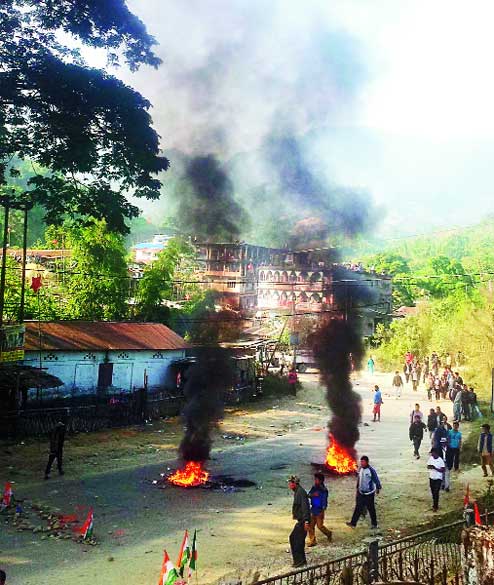
Guwahati, Dec. 1: Assam health minister Himanta Biswa Sarma today said the Nucleic Acid Amplification Test (NAAT) to detect HIV infection is not "feasible" for the state, a statement which has not gone down well with those engaged in the fight against the disease.
"Though NAAT is considered to be the most effective and fastest mode of detecting HIV, it is not feasible for a country like India and particularly in Assam. The government can put a NAAT facility in Gauhati Medical College and Hospital. But at the same time the government cannot put such a facility in hospitals in remote places like Jonai, Majuli or Sadiya owing to the high costs involved," he said.
NAAT facilities are available in very few healthcare institutions, including AIIMS Delhi, Odisha, Karnataka and International Hospital in Guwahati, a private facility now with a tie-up with Apollo Hospitals.
In Assam, the Enzyme-linked Immunosorbent Assay (Elisa) and a more modern Enhanced Chemiluminescence Assay (CLIA) tests are done to detect HIV anti-bodies, which the body generates post-infection. The tests can detect the anti-bodies only after the 18-day window period associated with HIV. The NAAT can detect the virus within three days of infection.
"We can set up NAAT facilities in the medical colleges and hospitals in Guwahati, Dibrugarh and Silchar to achieve political brownie points. But what about the remotest parts of the state? There are 26 blood banks in the state. The government cannot get 26 NAAT machines. That will cost hundreds of crores of rupees," Sarma said, during his speech at a conference organised by Assam State AIDS Control Society (ASACS) on World AIDS Day here today.
"One NAAT test costs Rs 2,400. If a poor patient has to spend Rs 2,400 just for blood transfusion, he or she will be left with a meagre amount for treatment. So we had to look for the best possible alternative," Sarma said.
The need for the technology was raised in May this year after a three-and-a-half-year-old child was detected with HIV when his burn injuries sustained last year refused to heal. It was suspected the contamination happened during his stay at GMCH when he was given blood.
Sarma suggested the "most feasible" means of blood transfusion, while avoiding HIV contamination, is through voluntary blood donation. "Voluntary blood donation, in which the recipient knows the donor personally and is aware that he does not have HIV, is the most feasible means. Few racketeers and corrupt health officials have formed a network of professional blood donors, which result in such blood-borne fatal diseases. Such incidents need to be checked," Sarma said.
According to the latest study of the society, around 1.1 per cent (more than 130 people) of the 12,090 HIV-infected persons recorded by the department had received the disease through transfusion.
An AIDS prevention activist, while expressing shock over Sarma's statement, said it was a very casual and irresponsible statement from a person who was in charge of health in a state like Assam.
"It is sad, ridiculous and tragic that Assam will not install NAAT facility just because it is too costly. It is not necessary that the government should install it in all hospitals. Starting the facility at medical colleges in Guwahati, Dibrugarh and Silchar will be a good start. At least, this way we can save a few lives. A beginning has to be made somewhere," the health activist said.
Sources in the blood bank at GMCH said they had been writing to Dispur to install NAAT since 2014.











